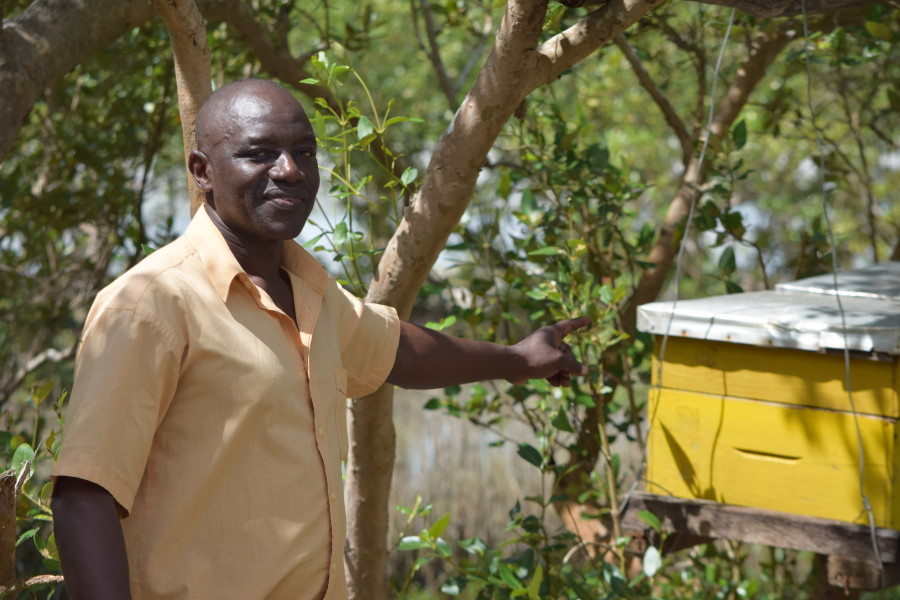For communities living in Dabaso Ward, Kilifi County, felling mangrove trees to make boats and furniture has been a way of life. The traditional attitudes towards the mangroves are however shifting as they become aware of the potential damage their activities have on the diminishing tree species.
Emmanuel Kalama belongs to Bush Garden Self Help Group, a community group that was formed in 2009 to contribute towards the restoration of mangrove trees, which had been degraded due to excessive logging by unscrupulous traders and light industries popular known as Juakali which use firewood from the trees as a source of energy.
The community group whose activities were beginning to dwindle due to scarcity of resources, was spurred to action thanks to Act!’s initiative dubbed, ‘Scaling-up Nature based Resource Management’ which is funded by the European Union through the Indian Ocean Commission.
For a decade, the group has been working with other community members to protect the mangroves by engaging them in bee keeping, something they say is changing the once degraded ecosystem.
“At first, it was not easy to persuade the community to buy into the idea of bee keeping because they did not understand the effects of their activities on the mangroves”, says Mohamed Ngunda, an extension officer with the Ministry of Livestock, Kilifi North Sub County.
According to Khakim Mwatondo, a Project Officer at Act!, mangrove trees are ideal for bee keeping as the quality of honey produced is much better than honey from other types of apiaries. He says that farmers who have embraced the project, are beginning to reap both economic and health benefits.
“Farmers are now harvesting more honey since the trees flower in all seasons attracting bees throughout the year. We are glad that the community has embraced the idea”, says Mwatondo as he shows us around the apiaries that are erected deep in the mangroves.
Joyce Mramba, 38 and a member of Upendo Women Self Help Group, says that the initiative is double blessing to them.
Through the project and support from the County Government, they have installed nine beehives with encouraging yields.
“Our lives are slowly changing for better. We are now earning small income which we share amongst ourselves and invest the rest in buying more beehives to boost honey production”, says Mramba.
She foresees substantial economic gains if the venture can be taken to a higher level.
One langstroth beehive has the potential of producing between 12-18 litres of honey. The groups anticipate increased sales following the installation of 60 additional beehives and 15 bee keeping kits donated through the project.
With an average market price of Ksh 1,000 per kilogram, the fortunes of the over 40 members is set to change.
They also hope to make most of their hives by producing wax and propolis as well as bee venom and royal jelly; unique products that have high market value.
Through the project, Act! aims at strengthening key value chains for apiculture and sea weed farming, as a way of diversification of coastal livelihoods. The project seeks to contribute to poverty reduction of the affected communities while offering sustainable conservation of the biodiversity.























